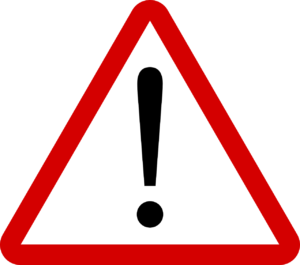Tampa Inadequate Warnings Lawyer
In product liability, inadequate warnings are a form of negligence on the part of a manufacturer or supplier that caused harm or injury to someone because of their ineffective or faulty products. If a company ignored the warning that their product had, then a consumer is able to sue that company for negligence in the form of a product liability lawsuit. There are different levels of liabilities, but the bottom line is that if a product does not give consumers the information that they needed or that they were misled into using it when it was dangerous, then they may be able to sue.

An important question to ask when asking, “What is an insufficient warning?” is whether or not the manufacturer included a warning label on the product in the first place. Many manufacturers choose to put such a warning on the product because it costs less to include it, rather than putting it on the product and then having to rewrite the warning.
If a product you purchased had a warning, but during reasonable use, you suffered an injury that was not mentioned on the warning label, you may have a claim against a manufacturer for insufficient warning.
What is an Inadequate Warning?
When you use a product as prescribed, you expected it to work properly and as advertised. Yet, at times people get injured without first reading and understanding the instructions on how to use a product properly and what they are getting themselves into. Manufacturers must be held responsible if their product resulted in injury to users because of inadequate warnings.
Some manufacturers, distributors, suppliers, and retailers fail to give adequate warnings about certain products. This is especially true about products that contain dangerous ingredients, such as dangerous pharmaceutical drugs. This is known as a direct liability, which is why it is important to make sure that you do not accidentally purchase or use products that contain dangerous ingredients.
What is the Law on Inadequate Warnings in Florida?
Inadequate warning laws in Florida may deal with medical malpractice law, but it tends to focus more on the manufacturer of products and pharmaceuticals. Laws on warnings are designed to help you make sure that you do not accidentally harm yourself or others when you are using certain products. There are different levels of penalties and fines, so you should make sure that you are fully informed before you sign any contracts.
There is a very high level of awareness among most consumers about warning labels on products. That is because there are many lawsuits surrounding consumer safety and the importance of adequately warning consumers about potentially dangerous products. However, manufacturers know that people do not always take the time to read the warnings on their products, so they try to make it difficult to read them.
For this reason, it is not always necessary to read the full label when you are buying products. You should always make sure that you are checking for the health warning on the back of the product. If there is a health warning label on the back, there should also be one on the cover of the box. If the product manual does not provide a health warning, the manufacturer should include it in the manual. If there is no health warning when there probably should have been a warning, the manufacturer may be liable for negligence.
Can I be Liable for Injuries if I Don’t Read a Warning Label?
In Florida, the law states that you may be found to be partially responsible for injuries under the pure comparative negligence rule. If you use a product inconsistent with the warning label but are injured in a way that was not mentioned on the label, then you may have a claim against the manufacturer for inadequate labeling. However, you will need to discuss your case to determine who is liable for your injuries. There are many factors that will need to be considered to determine if you have a claim or not.
Do I Need an Attorney for an Inadequate Warning Claim?
If you are wondering whether or not you need to hire a lawyer and settle your case, the answer is yes, you absolutely do need to contact a professional product liability attorney. Florida product liability law can be extremely complicated. If you have been in contact with the manufacturer or an insurance company, be sure you don’t sign anything until you speak with us.
At Darrigo & Diaz, we have more than 200 collective years of legal experience and have been serving the Tampa area since 1999. To learn more about your options, contact our firm by calling (813) 774-3341 and ask about our free case evaluations.

